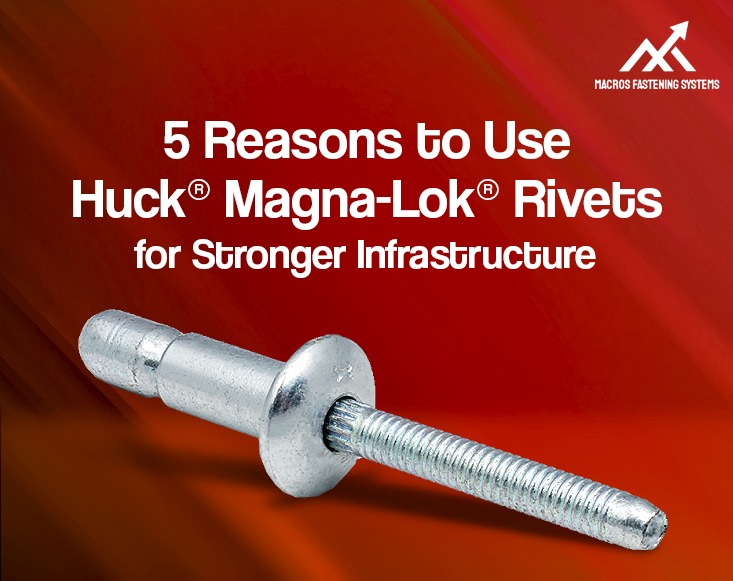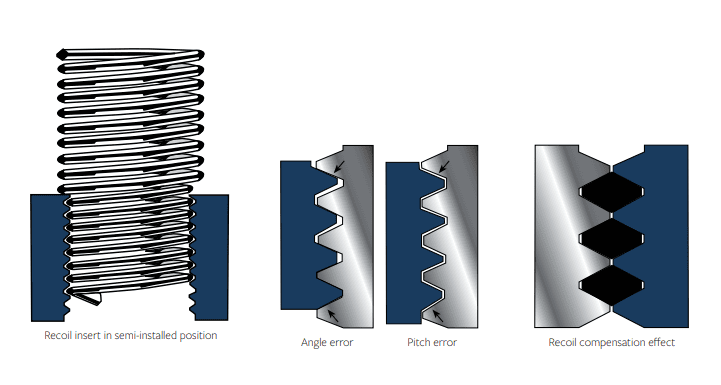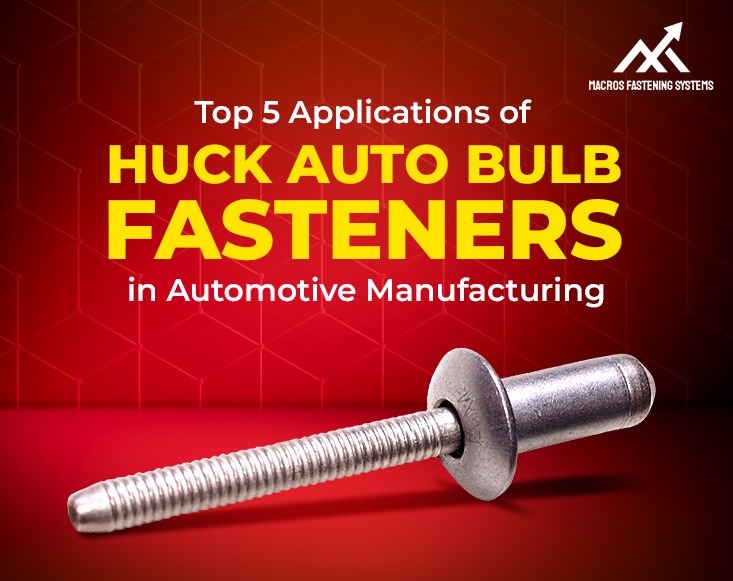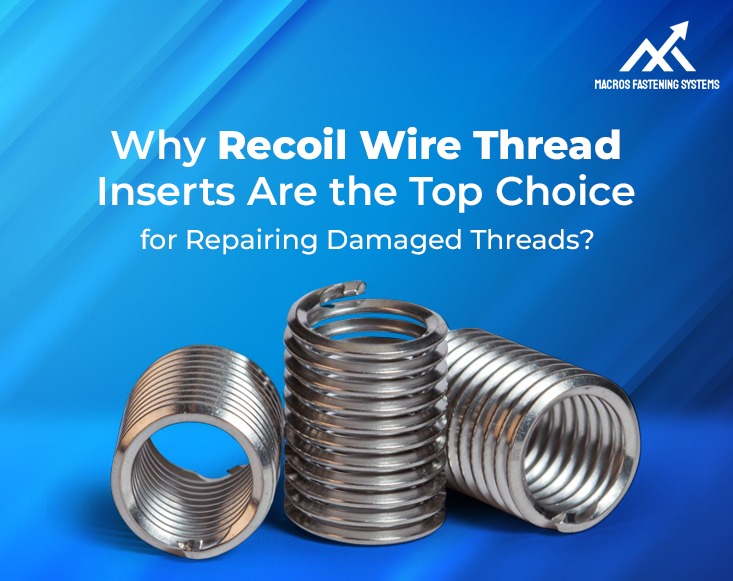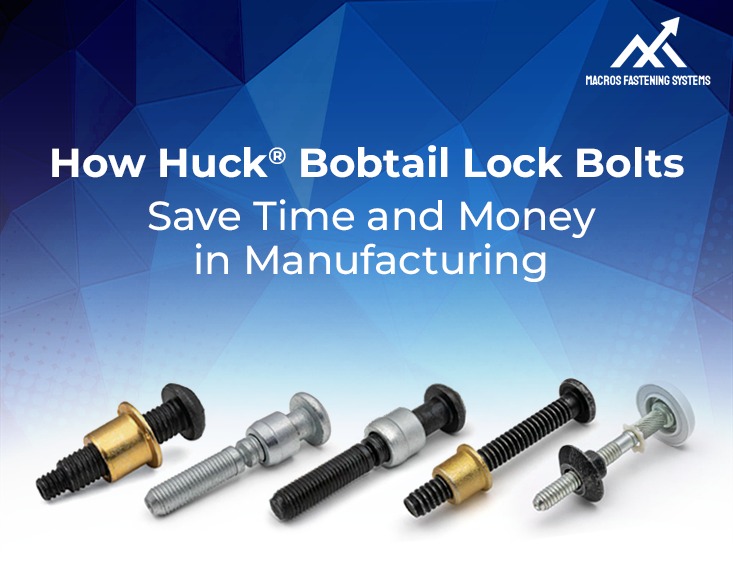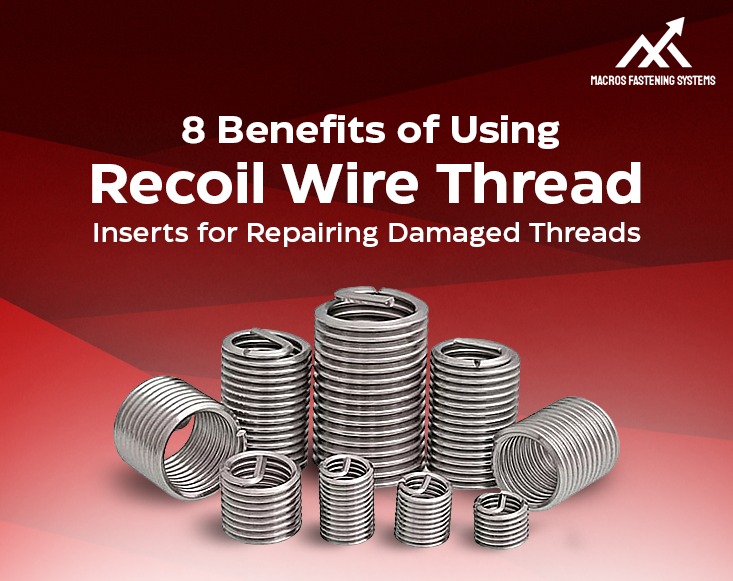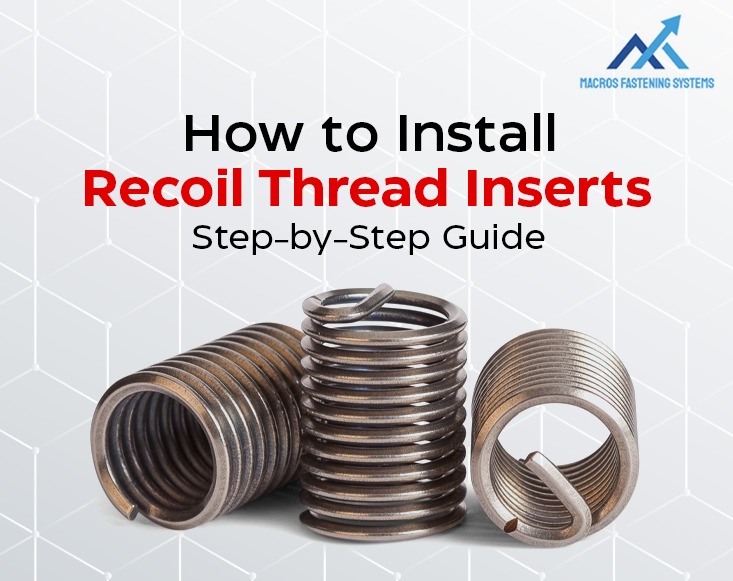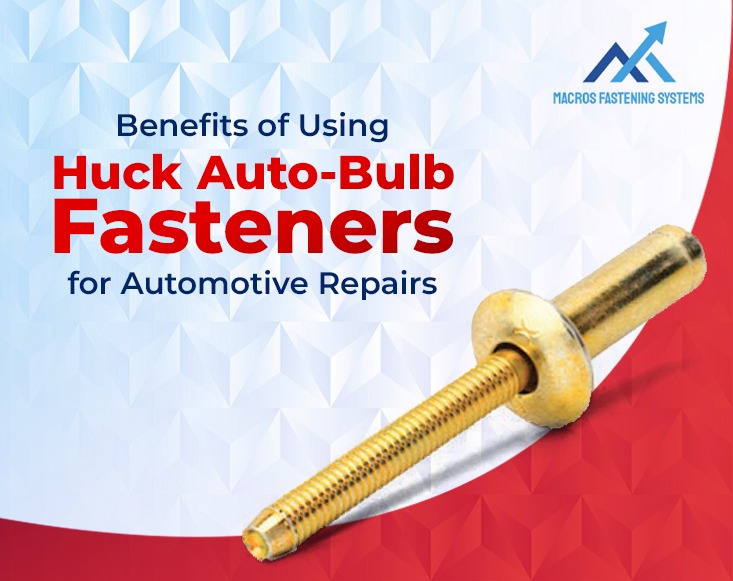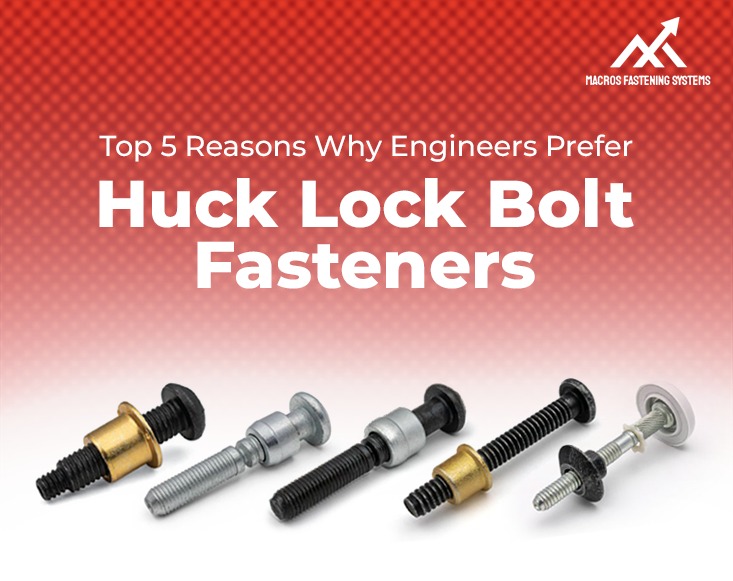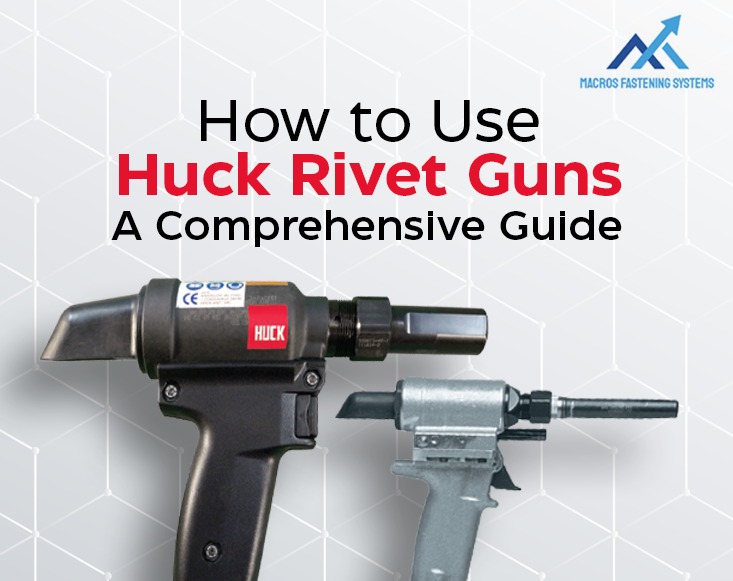Most people realize how significant of a role fasteners play in building a strong, reliable, and consistent infrastructure. A bad fastening system can make or break a structure, and bad fastening systems mean bad repairs, bad infrastructure, and bad catastrophes!
Huck® Magna-Lok® Rivets are an industry leading structural blind rivets designed for maximum strength and security. These fastening solutions can last under pressure, and Huck® Magna-Lok® ranks high in performance among all infrastructure applications.
Here are 5 reasons that should have you convinced that Huck® Magna-Lok® Rivets are a worthy investment for your next infrastructure project.
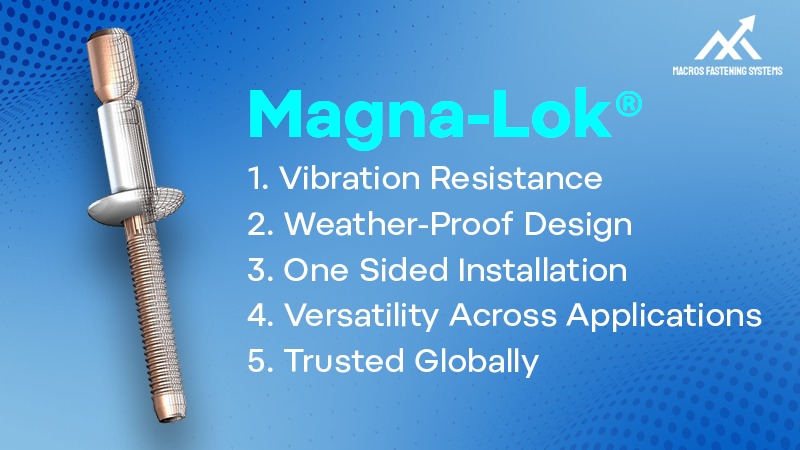
1. Ultimate Strength and Vibration Resistance
Huck® Magna-Lok® Rivets strength is paramount in the design. Once installed, Huck® Magna-Lok® Rivets create a solid joint that will not loosen under vibration and have tremendous strength to be a great choice for bridges, highways, rail systems. Many of the structural elements that receive constant movement with heavy load cycles.
Huck® Magna-Lok® Rivets offer sustained and consistent performance over time unlike traditional nuts and bolts which may require maintenance due to loosening or wear. The internal locking hazard of a Huck® Magna-Lok® Rivets means the fastener will remain effectively secured, no matter the circumstances.
2. Seated Design for Weather Protection
Infrastructure can be vulnerable to the elements including rain, wind, snow, salt, and many more. The seated design of Magna-Lok® rivets has a prominent advantage in this context and challenges with corrosion and moisture. Their watertight seal secures joints against moisture and corrosion extending the life of the structure.
These infrastructure fasteners can be confidently used in coastal installations or regions that receive a significant amount of snow with less need for maintenance and improved service life.
3. One Side Installation Saves Time and Money
Blind rivets for structures such as Huck® Magna-Lok®, being installed from one side will significantly contribute to time efficiencies in construction and repair work. This is especially significant when it is necessary to work with confined or difficult to reach spaces that would take substantially longer to complete with conventional bolting techniques that would use more time, labor, or specialized equipment.
Reducing the effort and gear required will translate into reduced project timelines, which represents cost management without affecting structure integrity.
4. Versatility Across Materials and Applications
Huck® Magna-Lok® Rivets can work with a variety of materials like steel, aluminium, and composites. Their adaptability allows them to fit in many infrastructures – whether its traffic signage, transportation hubs, electrical grid systems, or urban development structures.
Because of their multi-grip feature, fewer rivet sizes are needed across jobs, meaning reduced inventory to manage and increased flexibility on site for installation.
5. Trusted Around the World by Other Industry Professionals
When engineers and builders are searching for reliable fasteners, Huck® is often top of mind. Magna-Lok® rivets are used for some of the most demanding structural applications in the world, and rightly so, when it comes to strength, durability, and reliability, they meet or exceed industry standards.
Build Stronger Infrastructure with Magna-Lok®
Infrastructure must last forever along with the fastening systems that hold it together. Huck® Magna-Lok® Rivets are the reliable, high-performance solution for your critical structural needs. Whether you are building a new structure or building an addition, Macros Fastening Systems supply you with the best Huck® Magna-Lok® rivets manufactured by Howmet Fastening Systems.
Contact us today to find out how Huck® structural blind rivets can help you build better, faster and stronger.


